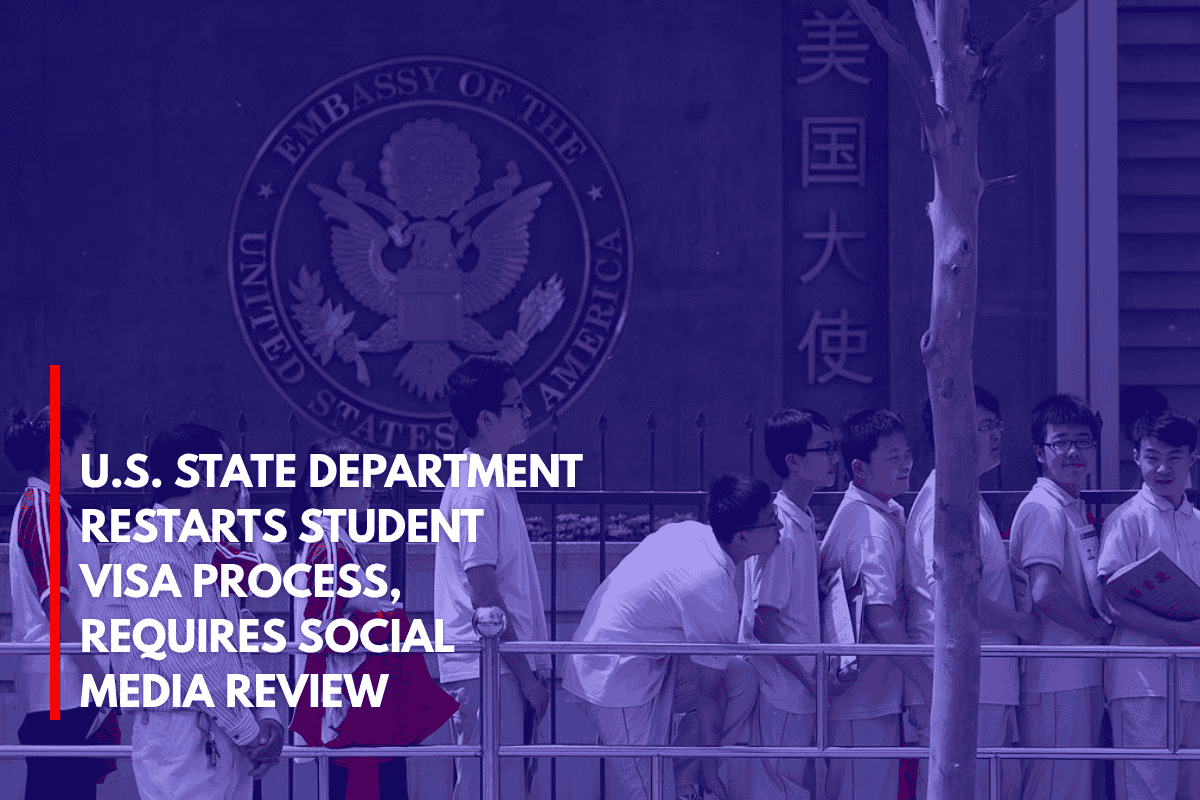Washington, D.C. – On Wednesday, the U.S. State Department announced the resumption of the suspended student visa application process for foreign nationals.
However, a significant change has been introduced: all applicants will now be required to unlock their social media accounts for government review as part of the visa application process.
According to the department, consular officers will examine applicants’ social media activity for any posts or messages that could be deemed hostile to the U.S. government, its culture, institutions, or founding principles.
Applicants who refuse to make their social media profiles public may face visa rejection, as such refusal could be viewed as an attempt to hide their online activity or evade the requirement.
Suspension and Resumption of Visa Processing
The decision to restart visa processing comes after a temporary suspension of student visa interviews that was implemented in May. This pause was intended to give the State Department time to prepare for expanded social media screening.
Students from around the world have been waiting for U.S. consulates to reopen visa appointments, with many facing pressure as the school year approaches and the window for booking travel and housing narrows.
On Wednesday, a 27-year-old Ph.D. student from China secured a visa interview appointment for next week, expressing relief after days of checking the scheduling website multiple times. “I’ve been refreshing the website a couple of times every day,” said the student, who spoke under the condition of anonymity.
Special Priority for Certain Colleges
As part of the reopening process, the State Department instructed consulates to prioritize visa applicants who plan to attend colleges where foreign students make up less than 15% of the student body.
This measure is aimed at targeting institutions that have a smaller proportion of international students, with an official noting that nearly 200 U.S. universities fall into this category.
In contrast, universities with higher proportions of foreign students, such as Ivy League schools and certain public universities, have seen increased scrutiny under the Trump administration’s broader efforts to control foreign student enrollment.
Harvard University, in particular, has been a focal point of pressure, with the Trump administration pushing for a cap on foreign enrollment.
Growing Scrutiny and Political Concerns
The State Department’s new requirement to review social media accounts is part of a broader pattern of increased scrutiny on foreign students.
The Trump administration has previously revoked study permissions for thousands of students and expanded the grounds for terminating their legal status. The policy to examine social media is seen as an attempt to further vet individuals seeking to enter the U.S.
Critics of the policy, such as Jameel Jaffer, executive director at the Knight First Amendment Institute at Columbia University, have raised concerns about the potential for ideological vetting.
Jaffer compared the new policy to the Cold War-era practices that led to the exclusion of intellectuals and artists from the U.S. due to their political views. “This policy makes a censor of every consular officer, and it will inevitably chill legitimate political speech both inside and outside the United States,” Jaffer said.
The U.S. Push for Stronger Vetting of Travelers
In addition to the social media policy, the Trump administration has also called for 36 countries to enhance their vetting processes for travelers to the U.S. or face a potential travel ban.
A recent diplomatic cable indicated that these countries have 60 days to address U.S. concerns or risk being added to a list of countries facing a travel ban. Currently, 12 countries are already on the U.S. travel ban list.
The latest move to scrutinize foreign students’ social media activity and enhance overall vetting is framed by the Trump administration as a necessary step to ensure proper screening of those seeking to enter the U.S., particularly in the wake of increasing concerns over national security and foreign influence.











Leave a Reply